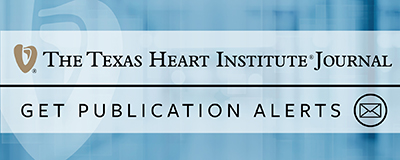In Memoriam: Tomas Klima, MD (1931–2022)



Citation: Texas Heart Institute Journal 50, 1; 10.14503/THIJ-22-8027
The medical community was saddened to learn about the passing of Dr Tomas Klima on July 7, 2022. Dr Klima was a pathologist at Baylor St Luke's Medical Center (formerly St Luke's Episcopal Hospital) and a long-time member of the Texas Heart Institute (THI) family.
Dr Klima was born in Baltimore, Maryland in 1931, while his father, a Czech physician, was completing a public health fellowship at Johns Hopkins University Hospital. Dr Klima's mother was Jewish, and his father was Catholic. He returned to Czechoslovakia with his parents when he was 10 months old. Both of his parents practiced medicine in Prague, and he enjoyed the attention of a large extended family. However, the lives of his family members were severely impacted by the events encompassing World War II. His father was killed, while he and his mother survived in the countryside. After the war, Dr Klima and his mother returned to Prague, where he completed his schooling and earned a medical degree from Charles University. He then continued his clinical training there, completing an internship and residency in pediatric pathology.
In 1959, Dr Klima married fellow physician Marcella Pikalková. He repeatedly sought opportunities for further training in the United States. In 1968, 37 years after his return to Czechoslovakia, Dr Klima accepted a fellowship in pediatric pathology at Texas Children's Hospital. In August of that year, when Dr Klima was in Houston for his 1-year fellowship, Warsaw Pact troops invaded Czechoslovakia, quelling government reforms after a brief period of liberalization. Dr Klima's wife, young daughter, and mother immediately fled to Austria. The next month, they arrived in Houston, where Marcella secured a position at the Baylor College of Medicine.
After his fellowship, Dr Klima completed another pathology residency at St Luke's Episcopal Hospital in 1972, where he remained a part of that division for the rest of his distinguished medical career. Dr Klima served on the faculties of Texas Children's Hospital and Baylor College of Medicine. He was a stalwart of the Houston Society of Clinical Pathologists and the Texas Society of Pathologists. He was a member of the THI Professional Staff and a valued reviewer for The Texas Heart Institute Journal. In 1990, he and other colleagues from Czechoslovakia established a physician's exchange program. Dr Klima traveled often to Prague, where he was a full professor at the Medical School. In 1991, a retiring professor gave him 2 collections of congenital and acquired heart disease specimens that he brought back from Prague to enhance the educational program at THI.
While carrying out a variety of duties in anatomic and clinical pathology, Dr Klima developed a keen interest in cardiovascular pathology. “Because of the Texas Heart Institute, we had an opportunity to associate with excellent cardiologists and cardiovascular surgeons,” he said in an interview he gave in 1986 when he was featured along with Dr Denton Cooley in an article about THI published in a special issue of Texas Medicine during the sesquicentennial celebration of Texas.
From the 1970s to the early 2000s, Dr Klima's collaboration with THI cardiologists and surgeons resulted in a wide range of cardiovascular publications on atherosclerotic and valvular diseases, cancers of the heart, surgical complications of aortic repair and coronary artery bypass grafting, and the use of mechanical circulatory support devices. He was also widely known for his regular working conferences open to THI cardiology fellows, surgical fellows, and any others who were interested. At these working conferences, he expertly demonstrated the intricacies and clinical correlates of diseased hearts and blood vessels. In addition, he sought to improve understanding of the pathologic basis for clinical manifestations and the treatment approaches available.
Dr Klima was very proud of his daughter, Eva, who was the family's fourth-generation member to enter the medical profession. He once reflected, “We are so fortunate that the last quarter of our life, we lived in freedom.” Dr Klima also once remarked that there were many things that he liked about living in Texas, but if forced to name just 1, that “Texas friendship in a free America probably says it best.”
Upon my arrival to Houston after accepting a position, Dr Klima and Marcella greeted me and my wife, Donna, warmly. During social evenings hosted by them, we came to appreciate their strong identity as Holocaust survivors and their gracious humanity. We are thankful for the opportunity to have known and learned from Dr Klima. He leaves a legacy of commitment to the ideals of medical professionalism, citizenship, and collegiality. Dr Klima's kindness and friendship affected all those who knew and worked with him at St Luke's Episcopal Hospital and THI, and he will be deeply missed.

Contributor Notes
